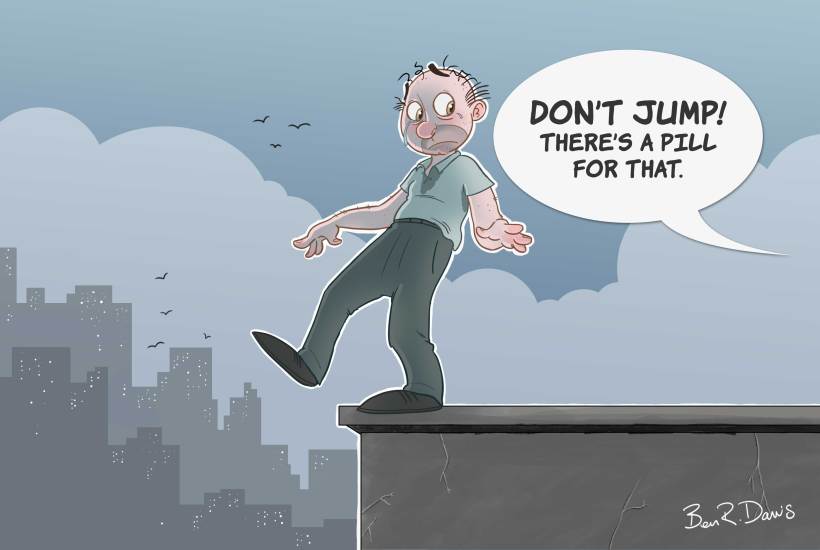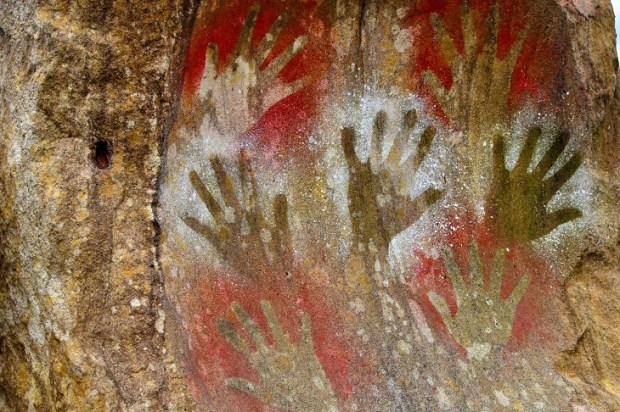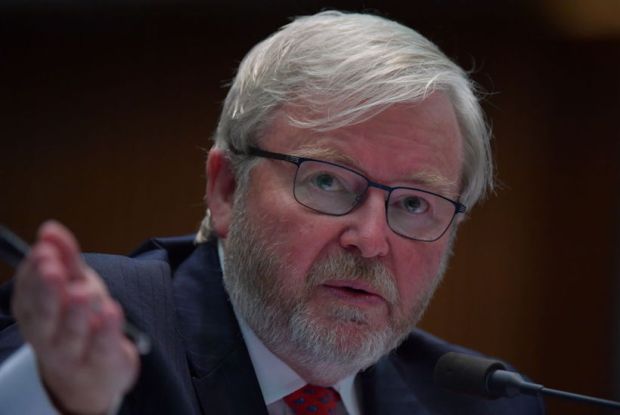James Merlino, Victoria’s Deputy Premier spectacularly crossed the floor last week to oppose his leader, Daniel Andrews, on the matter of doctor-assisted suicide. Merlino was quoted as saying, “This is a deeply flawed Bill.” Labor icon and former PM, Paul Keating, also weighed in on the commentary once the Bill passed the lower house. He called it “deeply regressive” and “an abrogation of the core instinct to survive.”
Not that long ago one of my good mates was diagnosed with a chronic illness, he had stopped eating, was suffering tremendous pain and was given only a couple of months to live. Years later he is now married, has a beautiful little daughter, and great prospects of surviving. After having witnessed what happened in Victoria last week, I can sincerely say that I thank God that he wasn’t born there.
In one of the best books on this particular subject, Assisted Suicide: The Liberal, Humanist Case Against Legalization, Kevin Yuill says: “Those who advocate allowing assisted suicide do so not out of compassion for the actual dying but out of fear that they might meet the same fate…Self-pity motivates campaigners to call for a change in the law, and not for an increase in compassionate acts by caring individuals – the real meaning of compassion.”
Let me outline four ‘compassionate’ reasons, then, as to why the door should remain firmly shut on doctor-assisted suicide.
The first, significantly, relates to the issue of trust. The trust between a doctor and their patient is paramount. However, opening the door to euthanasia means that this relationship is fundamentally undermined, especially when people are at their most vulnerable. A profound shift in mindset takes place when a doctor goes from being a person’s ‘healer’ to their ‘executioner.’ As Dr Michael Gannon, President of the Australian Medical Association, has written recently: “Doctors should not be involved in interventions that have as their primary intention the ending of a person’s life”.
Ethicist, Dr Scott Rae, tells the story of speaking at a medical conference, and a physician said to him, “If the patient tells me to keep going, but the family member tells me to stop, I am going to stop because the patient is going to die and the family member is still going to be around to sue me.” Rae immediately responded, “I am so glad you’re not my physician, because now I know I couldn’t trust you.”
The second issue relates to mental health. Tragically, 2,400 Australians commit suicide annually with 90 per cent of those suffering from a mental illness, usually depression. The rates of depression are, according to Beyond Blue, “Four times higher among people with chronic pain and almost one in three Australian adults with severe pain have higher or very high levels of psychological distress.” Hence, seeing that a person who is suffering from a terminal illness is almost certainly going to be suffering from a mental illness, most likely depression, how can they be considered to be in a “sound mind,” especially in deciding to end their own lives?
The third issue is financial. One particular aspect that really needs to be addressed in this whole debate is the insidious influence of greed both at a state level and also at a more personal one. As far as the state is concerned, we face a looming problem as a society with an ageing population and a low natural birth rate. What this means is that at some point in the future the capacity of the state to pay for so many people in care will be exhausted. As many health insurance companies know only too well, there is nothing cheaper than dead.
On a more personal level, there will also be pressure on older Australians to end their lives. According to a recent survey of 1,000 Australians commissioned by Slater and Gordon, 26 per cent of Gen Ys said that they would need to rely on an inheritance to pay off their mortgage. Unfortunately, most of us have seen how quickly relationships can sour when it comes to money. But what does the prospect of potentially receiving a large financial windfall do to the relationship with one’s own mum or dad? In our better moments, absolutely nothing, but in those darker times…well, there’s no limit to what the human heart can conceive, is there?
The fourth and final point is theological. While this may seem irrelevant to many, it nevertheless remains true that the majority of Australians identify as religious people, with a majority having a Judaeo-Christian heritage which forbids all forms of unlawful killing. It is this heritage that we are all too quickly abandoning. This inherited cultural tradition clearly prohibits not only the taking one’s own life, but the life of someone else as well. The spiritual truth that is being affirmed here is that there is something fundamentally sacred about human beings, not because we are merely alive, but because we alone, of all the creatures, in some mysterious way bear the image of God. Human life is therefore precious and must be protected.
We don’t need any changes to our current legislation to treat people who are terminally ill with compassion. We just need politicians like James Merlino and who have the courage and conviction to do what is right on the most fundamental of issues even if it means going against the leader of their own political party.
Sadly, people like former Labor Health Minister, Graham Richardson just don’t get this. He has written against Merlino accusing him of “contradicting his Premier” while at the same time belittling everyone else in Australia who agrees with him as being “weak-kneed.” Maybe Richo should heed his own advice and listen to his former Prime Minister, Paul Keating, who produced a very perceptive op-ed piece last week. Keating stated:
The concerns I express are shared by people of any religion or no religion. In public life, it is the principles that matter. They define the norms and values of a society and in this case the principles concern our view of human life itself. It is a mistake for legislators to act on the deeply held emotional concerns of many when that involves crossing a threshold that will affect the entire society in perpetuity.
At the end of the day (or I should say, “our days”) the life we have been given is a gift, not a right. It is not ours to dispose of in any way we wish. The question then is not so much about dying with ‘dignity’ as it is with being humble enough to receive the love and support of those around us. Or ultimately, acknowledging that there is One who is greater than our ourselves and that we are not in control. As it says in the Bible: “Your eyes saw my unformed body; all the days ordained for me were written in your book before one of them came to be.” (Psalm 139:16)
Mark Powell is the Associate Pastor of Cornerstone Presbyterian Church, Strathfield.
Cartoon: Ben R Davis.
Got something to add? Join the discussion and comment below.
Got something to add? Join the discussion and comment below.
Get 10 issues for just $10
Subscribe to The Spectator Australia today for the next 10 magazine issues, plus full online access, for just $10.


























Comments
Don't miss out
Join the conversation with other Spectator Australia readers. Subscribe to leave a comment.
SUBSCRIBEAlready a subscriber? Log in